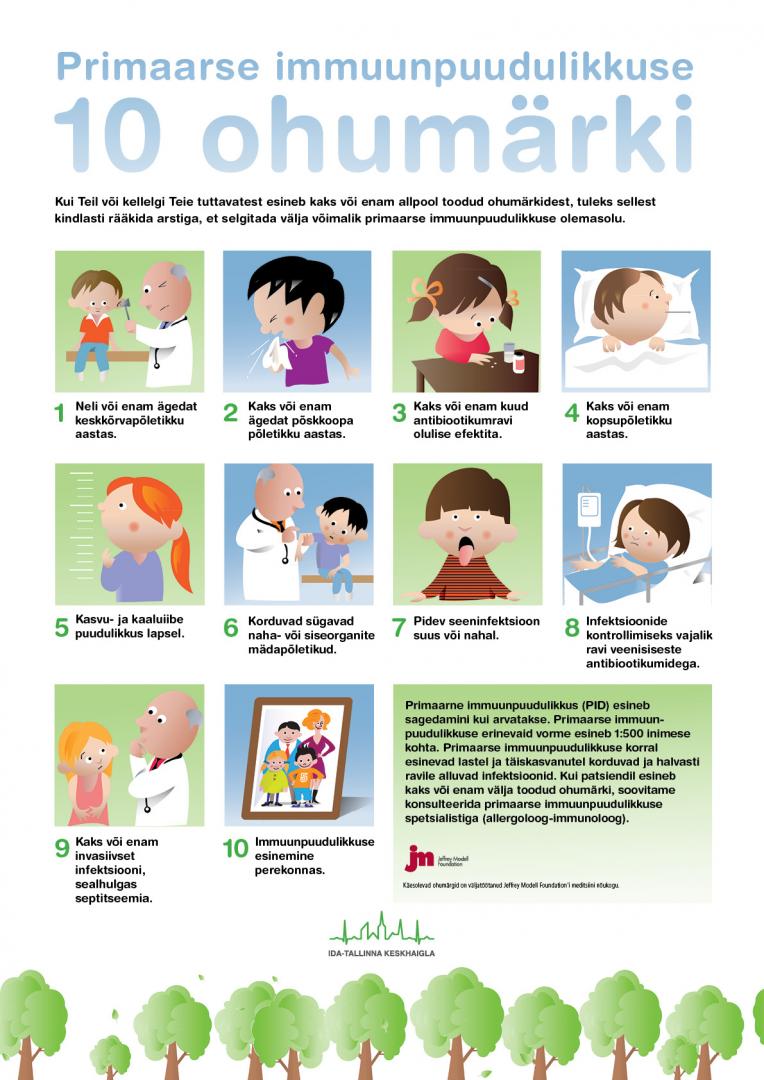Primary immunodeficiency
In primary immunodeficiency (PID), a congenital genetic defect leads to a defect or dysfunction of some specific part(s) of the immune system. This can manifest as, for example, an infection caused by an unusual pathogen, an uncommon course or duration of illness or frequent recurrent infections.
Our goal is the earliest possible diagnosis and complex treatment of patients with primary immunodeficiency. In the treatment of immunodeficiencies, we implement modern diagnostics and treatment methods, and in the case of less common forms of the deficiencies, we also involve specialists from outside our hospital, when necessary. Since 2011, the Centre for Allergology and Immunology has been part of the Jeffrey Model Foundation's Global Network of Immunodeficiency Centres.
We recommend a consultation with a primary immunodeficiency specialist if you have two or more of the following danger signs:
- four or more acute otitis media episodes in a year
- two or more acute sinusitis episodes in a year
- antibiotic treatment has not given a significant effect for two or more months
- two or more pneumonia episodes in a year
- lack of growth and weight gain in a child
- recurrent deep bacterial inflammation of the skin or internal organs
- persistent fungal infection of the mouth or on the skin
- treatment with intravenous antibiotics is necessary to gain control of infections
- two or more invasive infections, including septicaemia
- occurrence of immunodeficiency in the family

 Terviseportaal
Terviseportaal